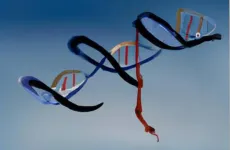(Press-News.org) DURHAM, N.C. – Identifying an older patient who is at risk for post-operative cognitive dysfunction might be done in the blink of an eye – literally.
Researchers at Duke Health found that a simple EEG measurement detects a signal of cognitive vulnerability when patients are asked to close, then open their eyes. Conducted prior to surgery, the non-invasive readout of brain waves helps predict which patients are at risk of post-operative confusion and attention problems.
“Roughly half of seemingly normal older adults experience problems with thinking, memory or attention after surgery,” said Leah Acker, M.D., Ph.D., assistant professor in Duke’s Department of Anesthesiology and lead author of a study appearing Dec. 12 in the British Journal of Anaesthesia.
“While the exact cause of cognitive dysfunction after surgery is unclear, the biggest predictor of impairment after surgery is pre-existing cognitive impairment," Acker said. "Pre-existing impairment can be difficult to detect with traditional screening tests, though, because many older adults compensate for minor impairments, particularly if they have more education, better support systems, or higher socioeconomic status.”
Acker and colleagues said typical cognitive screening tests measure functions such as language skills, short-term recall and time-place orientation. Many people can compensate for these deficits, however, which masks their vulnerability to a common complication arising after surgery.
“When people are unaware that they have some cognitive dysfunction, the onset after surgery can be devastating,” Acker said.
The Duke team used an EEG test to measure a change in brain electrical patters that cannot be disguised.
“Our test measures brain reactivity, which is a kind of automatic response. With something that is automatic, there is really no way to compensate,” Acker said.
When people close and then open their eyes, their brains change specific electrical activity patterns called alpha oscillations. The decrease in alpha oscillations going from closed to open eyes is called alpha attenuation.
Specifically, EEG-measured alpha power is lower when our eyes are open and we are processing the visual information around us. Alpha power is higher when we are internally focused or daydreaming. This alpha-power decrease in the eyes-open vs. eyes-closed states remains strong in healthy older adults, but has been reported to be diminished among those with chronic neurocognitive disorders.
The Duke team harnessed this observation to devise a predictive test using a quick, preoperative EEG. They assessed 71 patients with a simple eyes-closed, eyes-open task to identify disordered arousal or attention. Patients were all over the age of 60 and were not undergoing neurological or cardiac procedures.
The researchers found that the test not only successfully detected which patients would have postoperative inattention, but it also helped identify the degree to which they’d experience problems.
While it remains unclear what causes an exacerbation of cognitive impairments in older patients after surgery and anesthesia, identifying patients who are at risk could help them weigh the impact of a procedure, and prepare them for the potential complication.
“This test is quite simple to perform and could prepare clinicians to take precautionary measures to reduce the risk for postoperative inattention, and possibly delirium,” Acker said. “More generally, because the brain’s reaction to something as simple as opening one’s eyes is closely associated with specific attention functions, we expect that this may yield insights into the neural mechanisms underlying neurocognitive vulnerability and resilience.”
In addition to Acker, study authors include Megan K. Wong, Mary Cooter Wright, Melody Reese, Charles M. Giattino, Kenneth C. Roberts, Sandra Au, Cathleen Colon-Emeric, Lewis A. Lipsitz, Michael Devinney, Jeffrey Browndyke, Sarada Eleswarpu, Eugene Moretti, Heather E. Whitson, Miles Berger, and Marty G. Woldorff.
The study received support from the National Institutes of Health (UH2AG056925, K76AG05702, 1R01AG073598-01A1, T32GM008600, R03-AG078891), the Claude D. Pepper Older Americans Independence Centers at Duke (P30AG028716) and Harvard (P30AG031679), and the Alzheimer’s Drug Discovery Foundation.
###
END
In April 2015, looters sacked an ancient cave burial at a site called Urd Ulaan Uneet high within the Altai Mountains of western Mongolia. When police apprehended the criminals, they uncovered, among other artifacts, an elegantly carved saddle made from several pieces of birch wood.
Now, in a new study, researchers from Mongolia collaborating with University of Colorado Boulder archaeologist William Taylor have described the find. The team’s radiocarbon dating pins the artifact to roughly the 4th Century ...
UNIVERSITY PARK, Pa. — Self-propelled nanoparticles could potentially advance drug delivery and lab-on-a-chip systems — but they are prone to go rogue with random, directionless movements. Now, an international team of researchers has developed an approach to rein in the synthetic particles.
Led by Igor Aronson, the Dorothy Foehr Huck and J. Lloyd Huck Chair Professor of Biomedical Engineering, Chemistry and Mathematics at Penn State, the team redesigned the nanoparticles into a propeller shape to better control their movements and increase their functionality. ...
Karandeep Singh, MD, has been recruited as the Joan and Irwin Jacobs Endowed Chair in Digital Health Innovation at University of California School of Medicine and named as the inaugural chief health artificial intelligence (AI) officer at UC San Diego Health, a newly developed position for the region’s only academic medical center.
This new role will be effective December 29, 2023.
In this position, Singh will focus on implementing change that advances safety and health outcomes in acute and ambulatory settings. His contributions will be pivotal in bringing innovation to ...
NEW YORK, NY--Many Black Americans who are thought to have a high risk of developing kidney disease possess a protective genetic variant that nullifies the extra risk, a new study from Columbia researchers has found.
The study found that high-risk people who carry this variant have a risk of developing kidney disease much closer to that of the general population.
The findings will have an immediate impact on clinical practice, says study leader Simone Sanna-Cherchi, MD, associate professor of medicine at Columbia’s Vagelos College of Physicians and Surgeons.
“Physicians ...
FOR IMMEDIATE RELEASE
Using a “liquid biopsy” to study genetic material from tumors shed into the bloodstream together with immune cells could help clinicians predict which patients with advanced lung cancers are responding to immunotherapies and which patients may develop immune-related side effects several months later, according to research directed by investigators at the Johns Hopkins Kimmel Cancer Center, the Bloomberg~Kimmel Institute for Cancer Immunotherapy and Allegheny Health Network Cancer Institute in Pittsburgh.
By monitoring changes in circulating tumor DNA (ctDNA) among 30 patients treated with immunotherapies for metastatic non-small cell lung cancers, ...
WASHINGTON, DC, 2023, December 12, 2023 – The problem of foodborne metal contamination has taken on new urgency, thanks in part to a 2021 US Congressional Report detailing high levels of metals found in infant food pulled off grocery shelves. (More recently, high levels of lead were discovered in children’s fruit puree pouches.) Now, two new studies provide information on the correlation between exposure to heavy metals in food and the risk of cancers and other serious health risks. The findings will be presented ...
Artificial intelligence (AI) systems are often depicted as sentient agents poised to overshadow the human mind. But AI lacks the crucial human ability of innovation, researchers at the University of California, Berkeley have found.
While children and adults alike can solve problems by finding novel uses for everyday objects, AI systems often lack the ability to view tools in a new way, according to findings published according to findings published in Perspectives on Psychological Science, a journal of ...
Physician-scientist Omar Abdel-Wahab, MD, is being honored at the 2023 American Society of Hematology (ASH) Annual Meeting with the William Dameshek Prize, which recognizes individuals who have made outstanding contributions to the field of hematology. The award will be presented December 12.
Dr. Abdel-Wahab, who chairs the Molecular Pharmacology Program at Memorial Sloan Kettering Cancer Center (MSK), was selected for his “trailblazing research” characterizing the genetic mutations that drive blood ...
A new study out of the Johns Hopkins Medicine Lyme Disease Research Center has revealed disparities in the diagnosis and treatment of Lyme disease between Black and White patients with the condition. Researchers say the data, which draws on participants’ medical histories, whether from Johns Hopkins Medicine or other institutions, highlights issues in the nation’s medical education on Lyme disease.
In the full article, published December 12 in JAMA Network Open, researchers say that Black patients were more likely to have advanced stages of Lyme disease when clinically diagnosed and also experience a longer time before receiving antibiotic treatment for the condition.
Lyme ...
DALLAS (SMU) J.-C. Chiao, the Mary and Richard Templeton Centennial Chair and professor in the Electrical and Computer Engineering Department in the SMU Lyle School of Engineering, has been named a fellow of the National Academy of Inventors (NAI).
Election as an NAI fellow is the highest professional distinction awarded to academic inventors. The NAI Fellows Program highlights academic inventors who have demonstrated a spirit of innovation in creating or facilitating outstanding inventions that have made a tangible impact on quality of life, economic development and the welfare of society.
Chiao, one of 162 inventors selected for the ...






